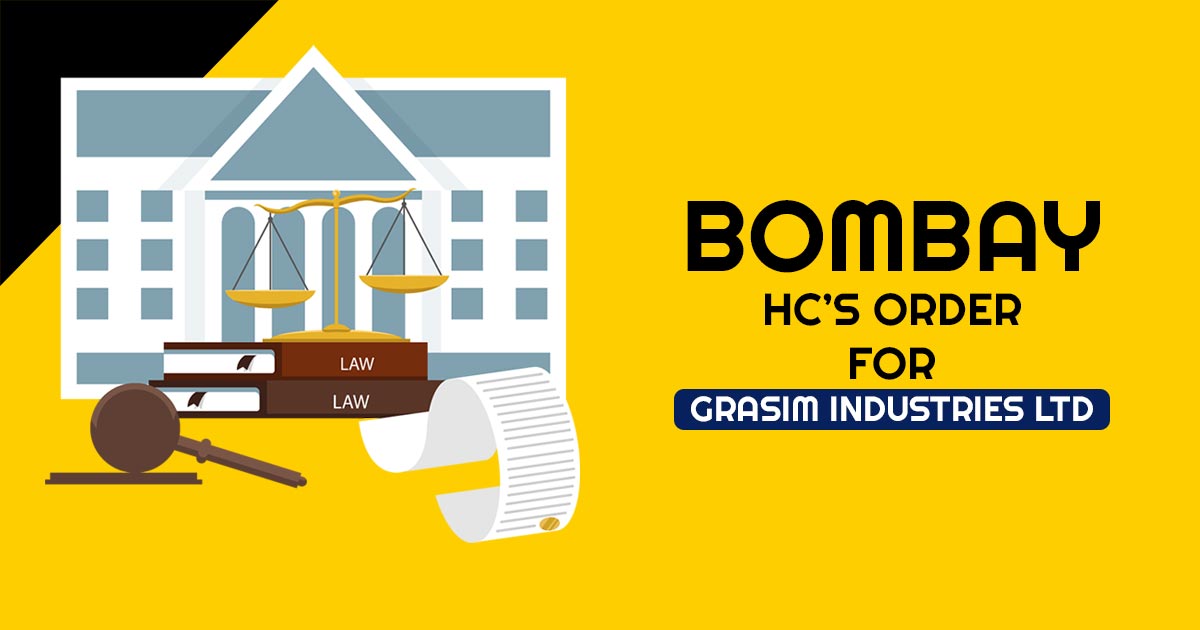
While invoking the doctrine of unjust enrichment, the Bombay High Court said to the department to refund the TDS amount deposited via taxpayer under protest.
Technically, when the amount deposited via the petitioner is called ‘tax deductible at source’, what the petitioner paid was ‘an ad hoc amount, not technically a TDS amount’. Also, as the court has also confirmed that the amount paid to Davy Mckee Corporation (DAVY) was not levied to tax in India, the departments’ insistence on the taxpayers filing that amount was not as per the law, and the amount so paid over should get refunded to the taxpayer, the bench of Justice K. R. Shriram and Justice N. K. Gokhale has observed.
The taxpayer/applicant set up the gas-based sponge iron plant in India that entered into the foreign technical collaboration agreement with Davy Mckee Corporation (DAVY) and another party. DAVY in the agreement has agreed to provide the applicant outside India with some engineering and additional concerned services with regard to the project.
Read Also: Bombay HC Invalidates a Reassessment Notice Given After 3 Years Without Approval
The applicant has entered into another agreement supervisory agreement with the DAVY to furnish specific supervisory services to the Petitioner in India. DAVY in an agreement was required to be provided to the applicant requiring the design, drawing, and data with respect to the sponge iron plant outside India. DAVY agreed to train a specific number of employees of the applicant to make available to these employees technical data, scientific knowledge, expertise, and others for commissioning, operation, and maintenance of the plant.
As per the contract with Davy for the construction of a gas-based sponge iron plant in India, the taxpayer acknowledged paying Davy USD 16.23 mn net of taxes. The taxpayer urged a No Objection Certificate (NOC) to enable remittance without withholding tax at source.
The assessee maintained that the contract is exempt from taxation in India because neither Davy nor any of the contract’s execution-related procedures must be carried out there.
Recommended: List of Cash Transactions Not Eligible For I-T Exemptions
The department found that Davy’s payment should be subject to taxation in India and imposed a 30% tax withholding, as specified in Section 115A. Despite objections, the taxpayer paid Rs. 2.74 crores and Rs. 2.82 crores in withholding tax for the first and second instalments to Davy, respectively. They asserted their right to a refund if it turned out that Davy’s payment was tax-exempt.
Revenue authorities maintained that the amount received from the taxpayer was taxable in India, even though Davy had declared zero income in India. Consequently, they reduced the withholding tax paid by the taxpayer against Davy’s tax liability. The taxpayer and Davy challenged the taxability of the sum received by Davy under Section 9(1)(vii) through a writ petition before the coordinating bench. Ultimately, it was determined that these receipts were not subject to taxation.
Davy’s successor wrote to the Revenue, seeking approval for the taxpayer to receive a refund of the withholding taxes they had already paid.
However, the Revenue refused to comply with the coordinating bench’s ruling, which stated that the taxpayer was not entitled to a refund of the withholding tax paid on behalf of Davy.
Important: Simple Steps to Track Income Tax Refund Status Online
The court ruled that once the appellant succeeded in their appeal, the revenue authorities must treat the appellant as having no obligation to make the payment. Consequently, any wrongly deducted or paid amounts to the Revenue Authorities, when not required, would become refundable to the appellant. This, of course, is subject to the condition that the recipient of the payment has not claimed or is not claiming credit for it.
| Case Title | Grasim Industries Ltd. Versus Assistant Commissioner of Income Tax |
| Citation | Writ Petition No. 2505 Of 2012 |
| Date | 01.08.2023 |
| Petitioner | J. D. Mistri |
| Respondent | Akhileshwar Sharma |
| Bombay High Court | Read Order |